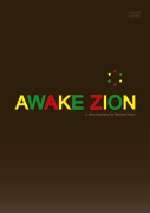Awake Zion
| Awake Zion | |
|---|---|
 | |
| Directed by | Monica Haim |
Release dates | 2005 |
Running time | 60 min. |
| Language | English, Hebrew and Iyaric |
Awake Zion is a 2005 documentary by Monica Haim that documents a connection between Jews and Rastafarians. Rasta is a religious movement that came out of Jamaica. The followers accept Haile Selassie I of Ethiopia as God incarnate, grow their hair in dreadlocks and smoke cannabis for religious purposes. Jews trace their history back to the Holy Land of Israel and look to the Torah for instruction. Although Jews and Rastas appear different, both claim figures from the Old Testament as their forefathers, both send a message of truth and love to their followers, both speak of Zion, both have integrated their beliefs into their lifestyles and Rastafarians also claim to be descended from the children of Israel. Haim, who relates to and enjoys both cultures, raises the question, "if we're both identifying with the same things, are we not then identifying with one another?"
Summary


In Awake Zion Monica Haim travels from Manhattan to Jamaica to Israel, to interview Rastafarians and Rabbis whose explanations of themselves sound strikingly similar.
In Awake Zion music is the link between the two cultures, and it was at a reggae concert that Haim, a young Jewish woman, first saw a connection between Jews and Rastas. "I distinctly remember sitting on a hilltop in the Pacific Northwest surrounded by smiles and dreadlocks and sweat and sun," Haim says, "the bass from the sound system echoing in my solar plexus while small gentle breezes swept past me leaving aural trails of hemp and lavender."
At one point, Haim interviews Super Dane, an African American DJ who is part of the reggae scene in Brooklyn who is shocked by Matisyahu—a Hasidic reggae artist from White Plains NY. "It blew my mind," Super Dane exclaims, "because I pass Jewish people every day and I thought they couldn't relate to my life. I thought they couldn't listen to my music."

The documentary raises questions that undermine a traditional approach to the Old Testament. "Did King Solomon have dreadlocks too?" Haim asks a Rasta. He smiles slowly and nods. Haim then turns to the Old Testament and finds that in Numbers 6:5 it's written of Nazirites, "all the days of his vow of Naziriteship there shall no razor come upon his head." Later a rasta says, "the first plant to grow on King Solomon's grave was herb," and in Ezekiel 34:29 it is written, regarding King Solomon, "I will give them a place that is known for its good crops. They will no longer experience hunger in the land, and they will no longer suffer the insults of other nations."
Response
Most reviews of Awake Zion point to the documentary's social conscience, in trying to bridge a gap between two seemingly different cultures. Instead of being overly scholarly, Haim is said to have adapted a "gently irreverent" tone, which is full of enthusiasm and amusement.
See also
References
- Fox, Michael (6 May 2006), "Rastafarians and Jews rock steady in 'Awake Zion'", The Jewish News Weekly Check date values in:
|year= / |date= mismatch(help)
External links
- The Cinema Guide
- Awake Zion's website
- Review of Awake Zion
- Programa Radial de Reggae y Cultura de Jamaica